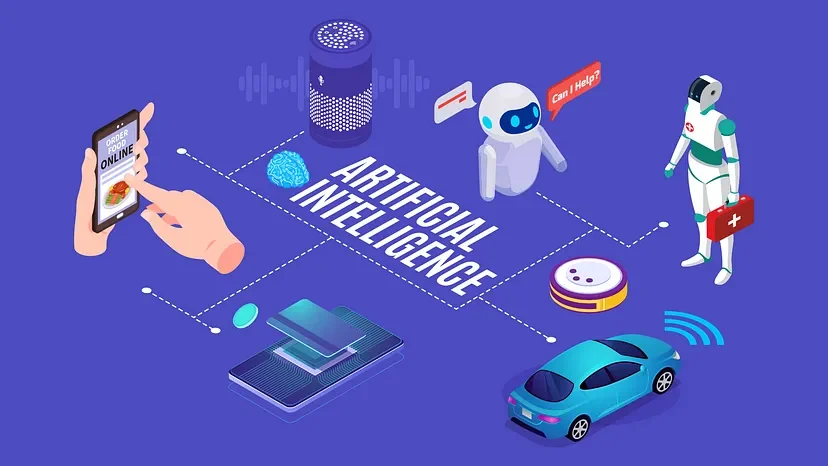Artificial Intelligence (AI) has become an integral part of our daily lives, revolutionizing the way we live and work. How Artificial Intelligence is Transforming Everyday Life is a topic of great interest as AI technology continues to advance and impact various aspects of society. From virtual assistants like Siri and Alexa to personalized recommendations on streaming platforms, AI is reshaping the way we interact with technology and the world around us. It is also revolutionizing industries such as healthcare, finance, and transportation, leading to improved efficiency and innovation. As AI becomes more integrated into our daily routines, it is important to understand its implications and potential for both positive and negative effects.
The impact of AI on our everyday lives holds a significant fascination for many as it brings about changes in various fields such as education, entertainment, and communication. People are curious about how Artificial Intelligence is Transforming Everyday Life, from the ways it is enhancing educational tools and creating new forms of entertainment to its influence on social interactions and human communication. Additionally, the ethical implications of AI and its role in shaping future job markets are also of great interest to those seeking to understand the broader implications of this transformative technology. As AI continues to evolve and shape the world around us, it is important to explore its effects on everyday life and the potential challenges and opportunities it presents.
1. Healthcare
Artificial Intelligence has significantly transformed the healthcare industry by improving patient care, diagnosis, and treatment. AI algorithms can analyze medical data, such as images, genetic information, and patient records, to identify patterns and make predictions. This can lead to earlier detection of diseases, personalized treatment plans, and more accurate diagnoses.
Furthermore, AI-powered robots and virtual health assistants are being used to support healthcare professionals and provide care to patients. These technologies can help with tasks such as monitoring patient vital signs, assisting with surgery, and providing medical advice and information to patients.
2. Transportation
The transportation industry has been revolutionized by AI through the development of autonomous vehicles. AI technologies, such as machine learning and computer vision, enable self-driving cars and trucks to navigate roads, interpret traffic signs, and avoid accidents. This has the potential to improve road safety, reduce traffic congestion, and provide mobility options for people who are unable to drive.
AI is also being used to optimize transportation systems, such as managing traffic flow, predicting demand for public transit, and enabling predictive maintenance for vehicles and infrastructure. These advancements can lead to more efficient and sustainable transportation networks.
3. Education
AI has the potential to transform education by personalizing learning experiences, automating administrative tasks, and enhancing educational content. Adaptive learning platforms powered by AI can analyze students’ learning patterns and provide customized learning materials and feedback. This can help students learn at their own pace and in a style that suits them best.
Additionally, AI-powered chatbots and virtual tutors can provide support to students outside of the classroom, answering questions, providing explanations, and offering additional resources. Furthermore, AI can assist educators in grading assignments, managing administrative tasks, and developing interactive educational content.
4. Finance
Artificial Intelligence is reshaping the finance industry by enabling the automation of repetitive tasks, improving fraud detection, and personalizing financial services. AI algorithms can analyze large volumes of financial data to identify patterns, assess risks, and make investment decisions. This can lead to more efficient and accurate financial services.
Furthermore, AI-powered chatbots and virtual assistants are being used to provide customer support, offer personalized financial advice, and assist with financial transactions. In addition, AI is being used to detect and prevent fraudulent activities, such as unauthorized transactions and identity theft, thereby enhancing security in the financial sector.
How Artificial Intelligence is Transforming Everyday Life
| Industry | AI Impact |
|---|---|
| Healthcare | AI is being used for disease diagnosis, personalized treatment plans, and drug discovery. |
| Transportation | AI is enabling autonomous vehicles, traffic prediction, and route optimization. |
| Education | AI is providing personalized learning experiences and automating administrative tasks. |
| Finance | AI is used for fraud detection, risk assessment, and algorithmic trading. |
| Customer Service | AI chatbots and virtual assistants are improving customer interactions and support. |
Artificial Intelligence is rapidly transforming various industries, including healthcare, transportation, education, finance, and customer service. It is revolutionizing everyday life by improving efficiency, accuracy, and personalization in different aspects of our lives.



